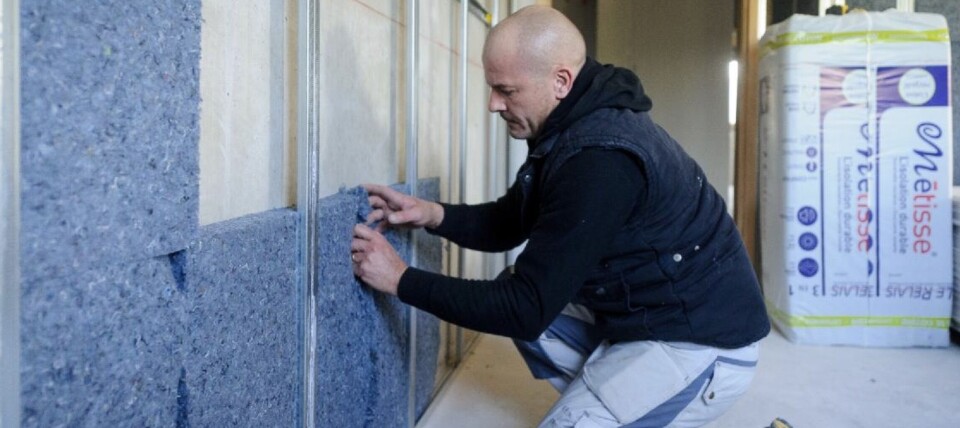-
Tefal launches nationwide pan collection scheme in French supermarkets
Shoppers can receive a discount voucher for recycling used cooking utensils - all brands accepted
-
How to define your style and make a French property a home
'There is always a balance between the inhabitant and the provenance of the building'
-
‘Our €8,000 barge in France gives us an off-grid retirement’
A British couple talk through their DIY conversion of an old working boat into a cosy floating home on the Canal du Midi
Old clothes turned into home insulation and sold in French DIY shops
The insulation is made from donated charity garments that are too badly damaged to be resold

French-made cotton fibre insulation from recycled clothes is now available as panels and rolls in DIY stores.
Branded Métisse, it is made by the co-operative Le Relais, set up to get long-term unemployed people back to work through the reuse and recycling of textiles.
Le Relais has a network of shops for secondhand clothes, but decided it could also do something useful with donated garments that were too badly damaged to be resold, by turning them into insulation material.
Compliant with building standards
Its first product was loose insulation for attics, which is installed using air pumps. It was well received and fully certified to be used by tradespeople.
Le Relais claims there were no issues with building standards, which can often be a big brake on the use of innovative green insulation.
The organisation has since started making insulation in rolls and panels.
Spokeswoman Amandine Fraisse told The Connexion: “We have heard that installers like it because it is very soft to use, and does not have any of the scratchiness or cause irritations that you often get with insulation.
“If there are tradespeople who refuse to use it because it does not meet building standards, it is because they are not up to date with the standards.”
She said the insulation was approved for MaPrimeRénov grants offered by the government to try to improve the energy efficiency of homes.
Grants, however, are not available for people who insulate their homes themselves, even though doing so is often much cheaper than using a tradesperson in the MaPrimeRénov scheme.
Read more: Explained: How to apply for a renovation grant for your French home
Costs more but lasts longer
Le Relais has two sales channels for its insulation: one for tradespeople and another for individuals, which has recently included large DIY stores such as Castorama.
Price-wise, insulation from recycled clothes is two to three times more expensive than traditional glass wool insulation. However, it is less than some other ‘green’ insulation, such as cork panels.
Technical manager Stéphane Bailly said: “The price is higher than glass wool, but Métisse lasts longer without damping down, and is much easier to handle.”
When glass wool damps down, usually after 10 to 15 years, it loses up to half of its insulation properties.
Métisse panels and rolls do not have a paper vapour barrier, which has to be added by the installer for outside walls or when used under roofs.
Unlike the loose insulation, which is 100% cotton, the rolls and panels are 85% cotton and 15% polyester.
They are rated as fireproof, without using boric salts, which some say are bad for health, using a patented method developed by Le Relais.
The organisation currently has one factory near Lille making the insulation, which employs 120 people.
Charity effort
Le Relais grew out of a branch of the Emmaüs charity, set up to help homeless people, and has bins to collect old clothes in most French towns.
Garments are sorted and those in good condition are sold through a chain of secondhand shops called Ding Fring.
Le Relais used to export secondhand clothes to Africa but has now launched recycling efforts in three countries instead. It was found that exporting secondhand clothes put many local clothing factories and tailors out of business.
Related articles
Is the €1 roof and attic insulation offer still available in France?
The areas of France with the best and worst house insulation
Leroy Merlin voted France’s favourite DIY shop: do you agree?
























